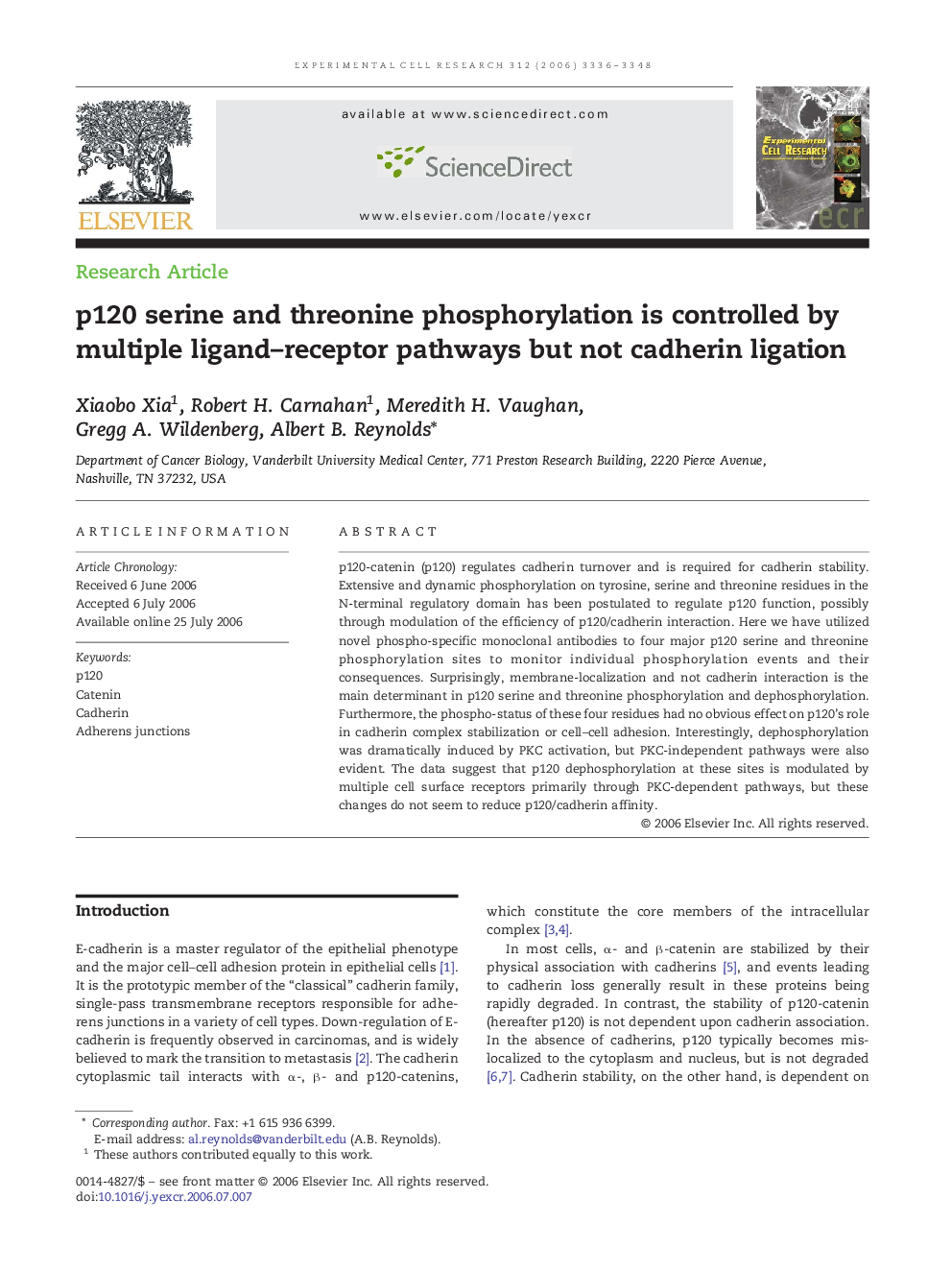| Article ID | Journal | Published Year | Pages | File Type |
|---|---|---|---|---|
| 2132845 | Experimental Cell Research | 2006 | 13 Pages |
p120-catenin (p120) regulates cadherin turnover and is required for cadherin stability. Extensive and dynamic phosphorylation on tyrosine, serine and threonine residues in the N-terminal regulatory domain has been postulated to regulate p120 function, possibly through modulation of the efficiency of p120/cadherin interaction. Here we have utilized novel phospho-specific monoclonal antibodies to four major p120 serine and threonine phosphorylation sites to monitor individual phosphorylation events and their consequences. Surprisingly, membrane-localization and not cadherin interaction is the main determinant in p120 serine and threonine phosphorylation and dephosphorylation. Furthermore, the phospho-status of these four residues had no obvious effect on p120’s role in cadherin complex stabilization or cell–cell adhesion. Interestingly, dephosphorylation was dramatically induced by PKC activation, but PKC-independent pathways were also evident. The data suggest that p120 dephosphorylation at these sites is modulated by multiple cell surface receptors primarily through PKC-dependent pathways, but these changes do not seem to reduce p120/cadherin affinity.
